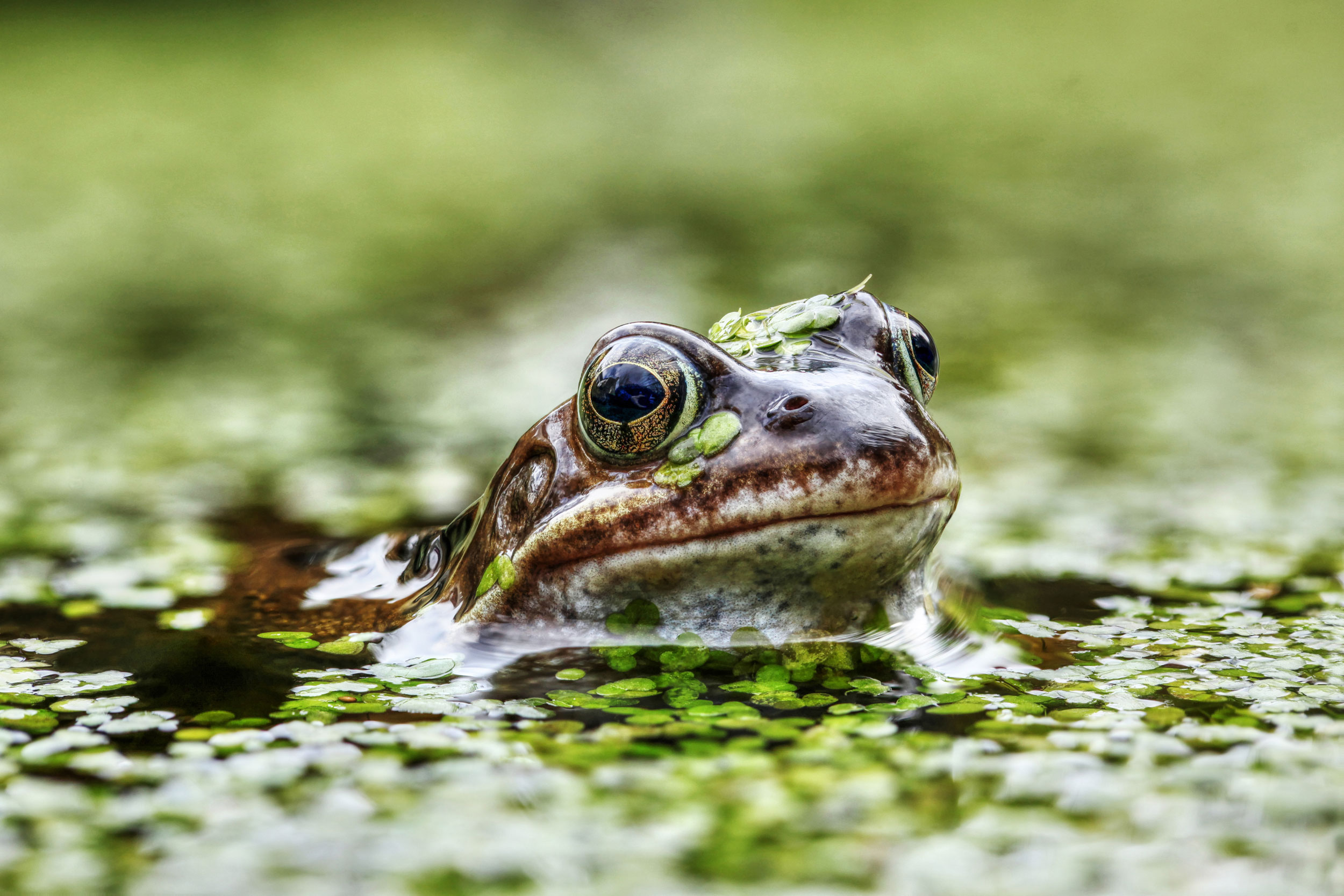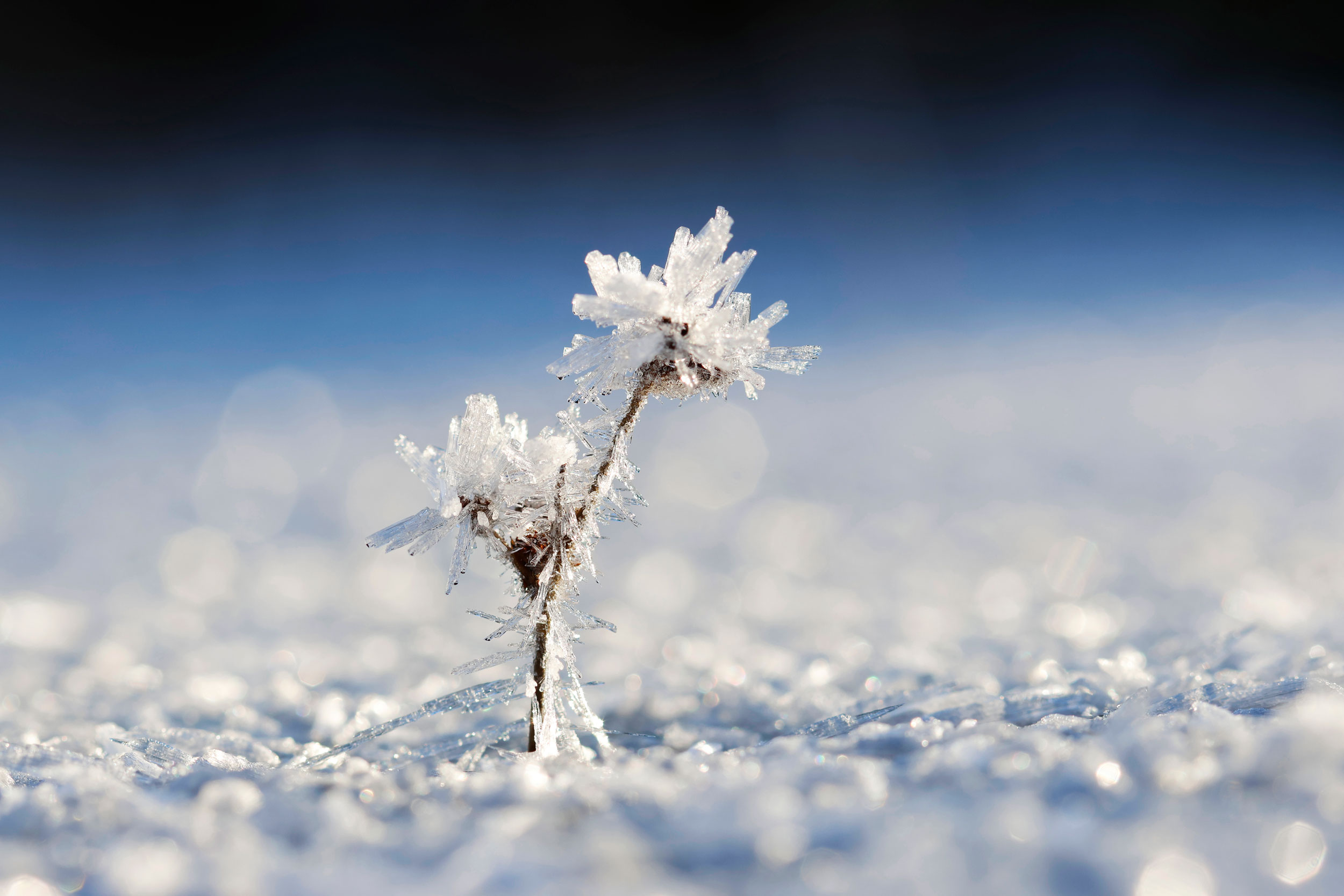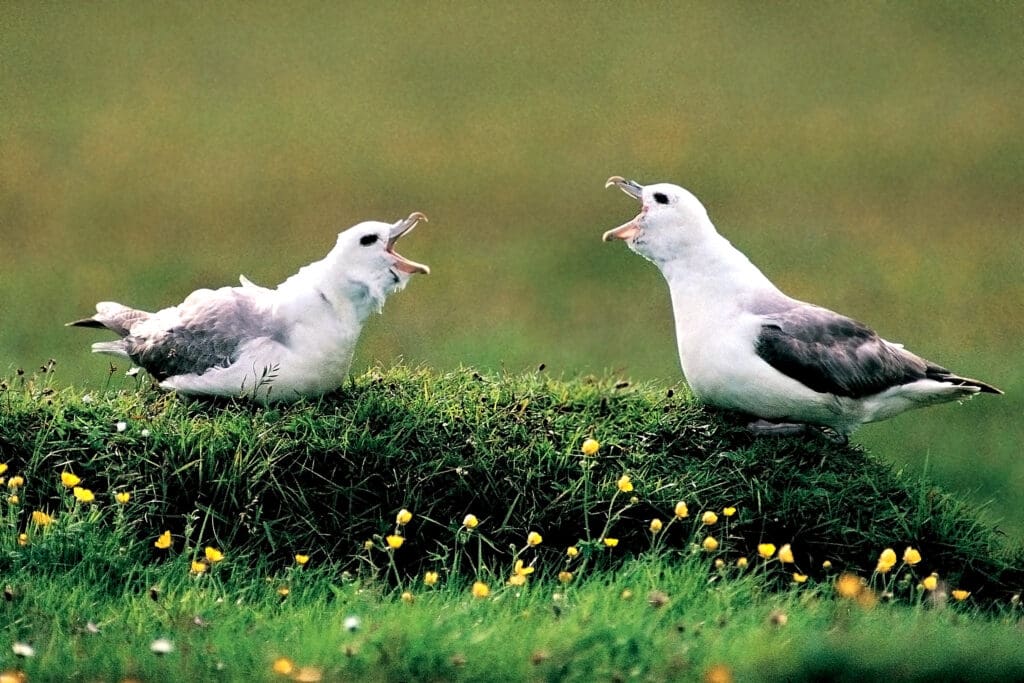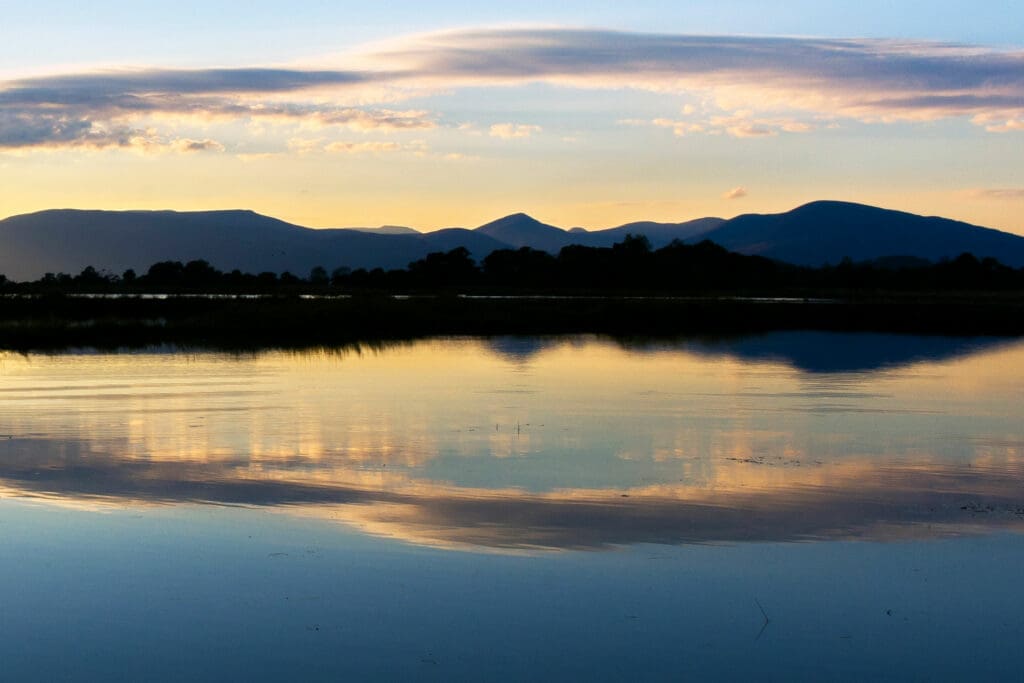Small bodies of fresh water – ponds, pools and lakes – might seem vulnerable to freezing conditions, but several adaptations prove the resilience of much aquatic life under the ice. Seasonal fluctuations mean some years are easier than others, and surviving animals and plants will compensate for deep-freeze years.

Common Frog. Photo: Iain Lawrie (Getty Images)
- Amphibians such as toads, newts and frogs pre-empt a freeze by leaving the pond altogether to hibernate under damp logs, rocks or compost heaps.
- Some frogs and newts hibernate at the bottom of the pond, gaining a head start on the breeding season, and can survive under ice, as long as there is some oxygenation.
- If oxygen levels fall too low, toxins can build up in amphibian bodies, especially during long spells of freezing, resulting in the natural phenomena known as ‘winterkill’.
- Tadpoles that haven’t had the right conditions to develop over summer can remain in the pond and overwinter, even through surface freezes, as tadpoles.
- Some beetles, dragonfly larvae and water boatmen hibernate at the bottom of ponds. Ice crystals form internally, drawing water out of vulnerable tissue, in effect, temporarily freeze-drying them.
- Other species, such as mayfly larvae and molluscs, protect themselves with natural antifreeze chemicals in their bodies.
- Early frogspawn is also vulnerable, unless it is below the water.
Listen to this feature here:

How to make a micro wildlife pond. Video: RSPB
You might also like

Comment: Finding a way forward together


